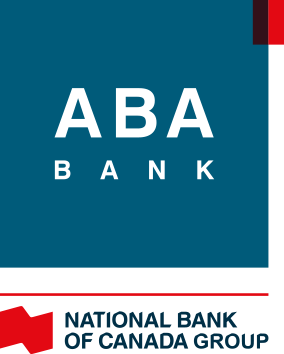Payment methods

ABA Bank is ready to assist your company in each of the following payment methods as well as combine them in accordance with your transaction structure and individual requirements.
Contacts
Should you have questions or need any advice on our Trade Finance tools, please contact ABA International Operations Team via tf@ababank.com.
Advance payment
A buyer effects payment BEFORE goods delivery or services performance. This method is used when a buyer's creditworthiness is doubtful or in case of unstable political and/or economical situation in the buyer's country.
Advance payment is the most suitable for sellers, but is very risky for buyers because:
- A buyer's capital is tied up before receiving of any goods or services;
- There is a risk that seller will not deliver the goods or the goods will be inconsistent, damaged or delivered with delay.
Open account
A seller ships goods to a buyer BEFORE any payment is made. After the shipment the seller issues invoice and waiting for payment.
This method is used when a buyer is well known for a seller or a buyer is a large company or if the seller and the buyer cooperate with each other for a long time.
Open account is the most suitable for buyers, but is very risky for sellers because:
- A seller transfers the goods ownership to a buyer before receiving of any payment;
- There is a risk that buyer will not pay or pay with delay or for some reason reject the goods.
Documentary collection
Documentary collection is a movement of documents (financial and/or commercial) between banks in accordance with the pre-defined arrangements between buyer and seller. A buyer is able to receive the goods only after the payment is made or the documents are accepted to be paid in some certain date or condition in future. All collections are regulated by the International Chamber of Commerce (ICC) unified rules "URC 522".
Documentary collection is used when a seller does not want to ship the goods using Open account method, but at the same time is not able to secure risks by letter of credit or other instrument.
As compared with Open account, Collection is more secured method for sellers because a buyer is not able to receive the goods without payment or acceptance.
However, Collection should be used only if:
- A buyer and a seller know each other and are reliable partners;
- There are no doubts in buyer's creditworthiness and willingness to buy the goods or services;
- Political and economical situation in the buyer's country is stable.
It is necessary to keep in mind that banks executing collection services are responsible only for documents issuance, delivery and acceptance, but have no responsibility before a seller if buyer decided to decline the goods or will not pay.
Letter of credit
Letter of credit (LC) is a buyer's bank undertaking to effect payment in favor of a seller if it has fulfilled the letter of credit terms and conditions.
This is the most secured and commonly used instrument in international trade finance. In order to standardize and unify the requirements and conditions of letters of credit the International Chamber of Commerce (ICC) has issued its Uniform Customs and Practice for Documentary Credits well known as "UCP600". Practically all banks of the world follow UCP600 which means that it does not depend on what country your partner is from, you will have the same approach and definitions in your trade transaction.
Letter of credit (LC) is used because:
- The most of sellers, especially from US or Europe, require LCs from Cambodian companies;
- It minimizes the risks of both parties - a buyer is sure that payment will be effected only upon receipt of shipping documents complying to the LC terms and conditions;
- A seller is sure that if the LC terms and conditions are fulfilled the payment is guaranteed;
- It is much more beneficial to pay under a LC rather than make a prepayment or advance payment;
- It allows to receive cheaper financing;
- Not only buyer and seller are responsible for the completion of transaction but their banks as well;
- It allows to expand the sales geography and increase the number or partners worldwide.
There are a lot of different types of LCs and ABA Bank is ready to offer you all of them!
Guarantee
Guarantee is an irrevocable undertaking of the issuing bank (guarantor) to pay to the guarantee receiver (beneficiary) if certain obligations of the applicant are not fulfilled or partially fulfilled.
For example, you are going to sell goods but not sure about the buyer's creditworthiness, it means that you are bearing a risk of non-payment. Guarantees are designed to minimize this risk as well as other risks related to sale-purchase operations. Thus, in case of non-payment you will receive your money from the guarantor.
The same is from the buyer's side – upon receipt of a bank guarantee, the buyer can effect payment and wait for the goods delivery. In case of non-delivery or any delays, the buyer receives his money from the guarantor.
ABA Bank is ready to issue any type of guarantee including:
- Tender guarantees (bid bonds)
- Payment guarantees
- Performance guarantees
- Advance payment guarantees

